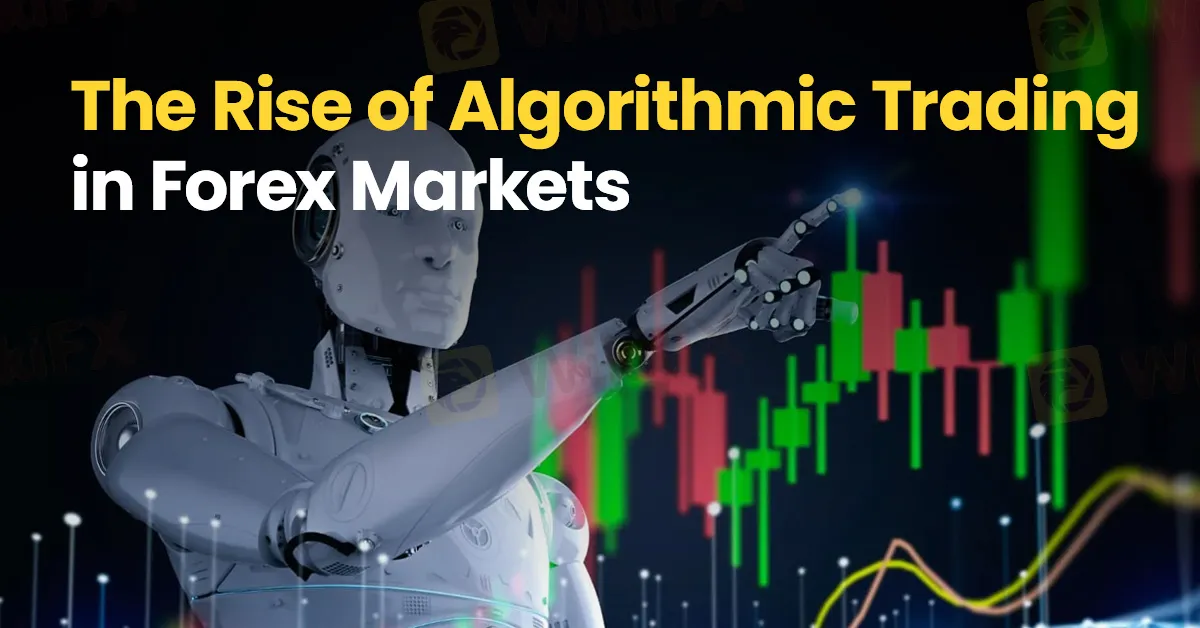The Rise of Algorithmic Trading in Forex Markets: Opportunities and Risks
Abstract:Over the past decade, the integration of technology into financial markets has revolutionized forex trading. Algorithmic trading, driven by complex mathematical models and real-time data, has become a cornerstone of modern trading strategies. This article explores the transformative impact of algorithmic trading on forex markets, as well as the opportunities and risks it presents.

Introduction
Over the past decade, the integration of technology into financial markets has revolutionized forex trading. Algorithmic trading, driven by complex mathematical models and real-time data, has become a cornerstone of modern trading strategies. This article explores the transformative impact of algorithmic trading on forex markets, as well as the opportunities and risks it presents.
Opportunities Presented by Algorithmic Trading
Algorithmic trading leverages advanced computer programs to execute trades at speeds and frequencies beyond human capability. This automation allows traders to capitalize on minor price fluctuations, execute large volumes of trades in a fraction of a second, and minimize human error. Moreover, algorithms can process vast amounts of data—from historical trends to real-time news—providing a significant edge in a competitive market.
The rise of machine learning has further enhanced these systems, enabling them to adapt to market changes and refine strategies based on past performance. For institutional traders and even sophisticated retail investors, this technology promises higher returns through improved efficiency and predictive power.
Risks and Challenges
However, algorithmic trading is not without its challenges. High-frequency trading systems can amplify market volatility, sometimes triggering abrupt price swings or flash crashes. The reliance on automated systems also brings cybersecurity risks, as even a minor glitch or hacking attempt can lead to significant financial losses. Moreover, the complexity of these algorithms can make it difficult for regulators to monitor and manage systemic risk.
Transparency remains a critical concern. While algorithms operate based on predefined rules, their decision-making processes are often opaque, leaving room for unanticipated outcomes during periods of market stress.
Conclusion
The evolution of algorithmic trading has reshaped the forex market landscape, offering unprecedented speed and efficiency. Yet, as traders harness the power of automation, they must also navigate the inherent risks. Balancing innovation with robust risk management and regulatory oversight is essential for sustaining a healthy, dynamic trading environment.

Read more

Vantage Markets: A Closer Look at Its Licenses
In an industry where safety and transparency are paramount, the regulatory status of online brokers has never been more important. For traders seeking to protect their capital, ensuring that a platform operates under recognised and stringent oversight can make all the difference. Vantage Markets, a well-known name in the online trading space, has recently come under review. Keep reading to learn more about Vantage Markets and its licenses.

Spreadex’s New Client Offer: 6 Months of the Financial Times
Spreadex, a UK-based provider of spread betting and CFD trading services, has introduced a promotional offer for new clients. Individuals who open a live trading account and deposit at least £500 will receive a six-month digital subscription to the Financial Times.

HYCM Reshapes Its Business After £1.4 Million Management Takeover
HYCM underwent a major leadership and structural shift in 2024 with a £1.4 million management buyout and the sale of its Dubai unit

eToro Renews AZ Alkmaar Sponsorship as Football Faces Big Changes
Online trading platform eToro has extended its sponsorship deal with Dutch football club AZ Alkmaar. The partnership, which started in 2023, will now continue until 2027.
WikiFX Broker
Latest News
Crypto News: $1 Trillion Managed Funds Fail Key Compliance Tests
No worries — You can invest with these offshore regulated brokers
BaFin Issues Multiple Warnings Against Unlicensed Financial Services and Identity Fraud
He Thought It Was an Investment, Now RM900,000 Is Gone
HYCM Reshapes Its Business After £1.4 Million Management Takeover
Phyntex Markets Broker Review
eToro Renews AZ Alkmaar Sponsorship as Football Faces Big Changes
MH Markets Introducing Broker (IB) Program
Spreadex’s New Client Offer: 6 Months of the Financial Times
Is Barath Trade really related to Bharat (India)?
Rate Calc
